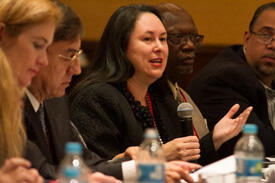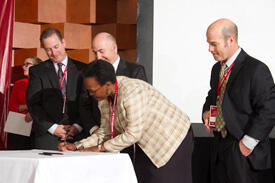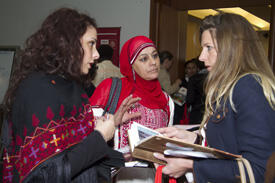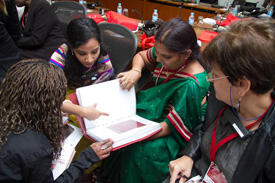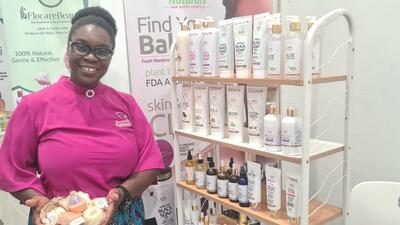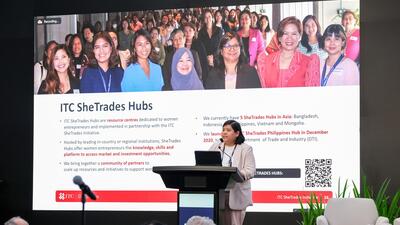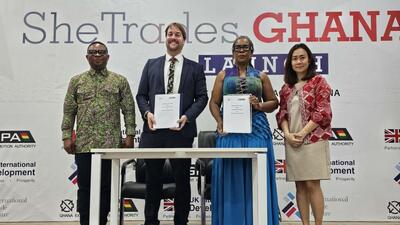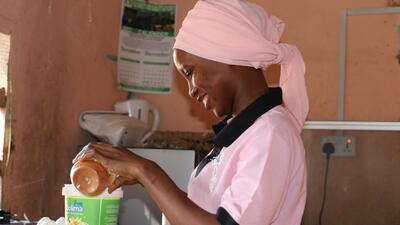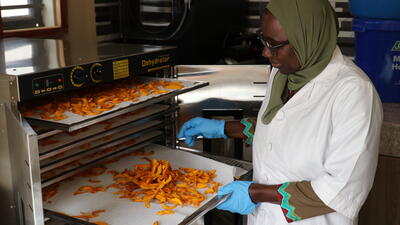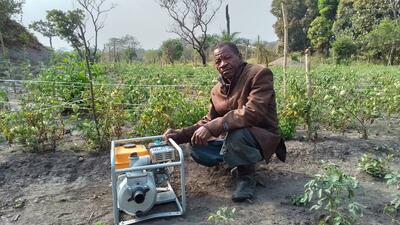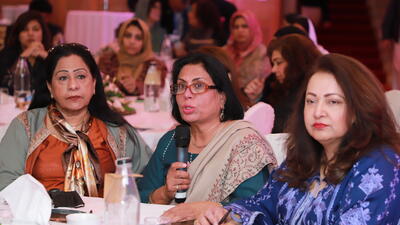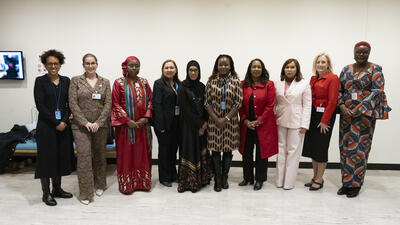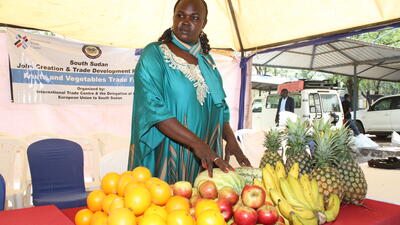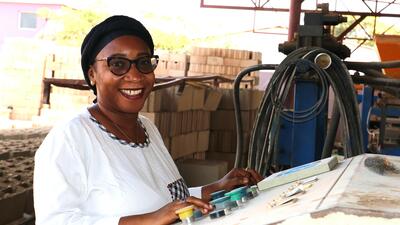Realizing the potential of women vendors
Small, but important, steps towards achieving the goals were achieved at the Women Vendors Exhibition and Forum (WVEF) 2012, while the fourth Senior Executive Roundtable on Sourcing from Women Vendors discussed how women vendors can increase their share of procurement.
For the first time, an APEC Workshop on Access to Markets was held in parallel to the Women Vendors Exhibition and Forum. Here participants looked at how to include women entrepreneurs in government procurement processes for the ultimate benefit of their families, their communities and national economic growth.
At WVEF, matchmaking sessions between sellers and buyers led to the completion of more than 60 agreements to explore business opportunities of approximately US$ 6 million, and many more deals are expected to follow in coming months as delegates continue bilateral discussions. Nearly 150 sellers and 40 buyers from multinational companies and medium-sized enterprises were among the 350 delegates, including officials from governments and trade support institutions, who attended this year’s event. The forum also provided an opportunity to break with traditional business conduct as delegates worked into the night discussing potential business with women vendors. For example, Enrique Hidalgo, President of ExxonMobil Ventures Mexico, and Felipe Gonzáles, Director for Procurement and Latin America of Pfizer, both rescheduled their diaries to meet women vendors from across the world and build bridges for future cooperation and the benefit of all concerned.
Patricia Francis, Executive Director of ITC, said: ‘The women vendors and companies that attended this year’s Women Vendors Exhibition and Forum are setting examples for others to follow. Both vendors and buyers have shown how important it is to move out of your comfort zone to seek and achieve success.’ One example of such success was the decision by the delegations from India and South Africa to enter into a joint agreement to develop electrical wiring products.
Francis’s views were echoed up by Nathán Wolf, Director-General for Cooperation and International Economic Promotion at Mexico’s Ministry of Foreign Affairs. He said: ‘This year’s Women Vendors Exhibition and Forum has been a huge opportunity to incorporate women entrepreneurs and women-owned businesses into the supply chains of global firms.’
Senior Executive Roundtable on Sourcing from Women Vendors
The fourth Senior Executive Roundtable on Sourcing from Women Vendors was held on 5 November and attracted more than 100 delegates from government, the private sector and trade support institutions who joined discussions on how to increase the procurement share won by women vendors. A delegate from a global pharmaceutical company said that the decision by his company to decentralize operations had provided a better opportunity to increase procurement from women vendors at the regional level.
Presiding over the first session of the roundtable, Francis said: ‘Increasing sourcing from women vendors is central not only to the goal of bringing more business women into trade and increasing the earnings of women in global value chains, but also to bringing global growth back on track. This is the goal, too, of the G20 finance ministers who are also meeting here in Mexico City today.’
Another delegate highlighted the fact that while 39% of companies in Latin America are owned by women, the proportion of women in leadership positions is less than 5%. He pointed out that research shows that companies with greater gender diversity have better business results, adding that in terms of procurement, greater representation of women in senior positions in large corporations can lead to increased promotion of the participation of women in a corporation’s value chain.
The roundtable participants agreed that corporations should increase their efforts to actively look for women vendors and that trade support institutions need to do more to identify companies owned by women and should increase capacity building to further enhance these efforts. There was also broad agreement that governments should establish preferential policies within the scope of the World Trade Organization’s plurilateral Agreement on Government Procurement to target more sourcing from companies owned by women. However, participants also urged women business owners to take a more proactive approach to increase their share of procurement contracts from government and corporations by doing their homework, understanding their customers and making better use of the competitive advantage they present as suppliers.
Increasing procurement from women-owned businesses is about more than ensuring that women have a fair chance of participating in the economy and global value chains. Governments in particular can make great strides in ensuring that wealth is spread more evenly across societies by channelling income into the hands of women. ‘Women spend more on their families, education, health and their communities. Investing in women is a wise business decision,’ said Elizabeth Vazquez, Chief Executive Officer of WEConnect International.
The fourth Senior Executive Roundtable on Sourcing from Women Vendors and WVEF 2012 were jointly organized by ITC and WEConnect International, in cooperation with ProMéxico and Mexico’s Ministry of Foreign Affairs. Additional organizing partners for WVEF were Asociación Mexicana de Mujeres Empresarias, the International Federation of Business and Professional Women, Vital Voices Global Partnership, the International Women’s Coffee Alliance, Full Circle Exchange, SPINNA and Quantum Leaps.
Jewellery workshop
As part of a three-day workshop held on 7 to 9 November, more than 70 Mexican women business entrepreneurs participated in advanced jewellery making.
The workshop was the closing event of an 18-month project implemented by ITC in close collaboration with Mexico’s Ministry of the Economy and FONAES (Fondo Nacional de Apoyo para Empresas en Solidaridad). The group had received training on United States market access requirements and was introduced to the latest trends in jewellery design prevailing in the market.
More than 40 Mexican women business entrepreneurs participating in the workshop also showcased their jewellery lines and sold products to participants at the event.




